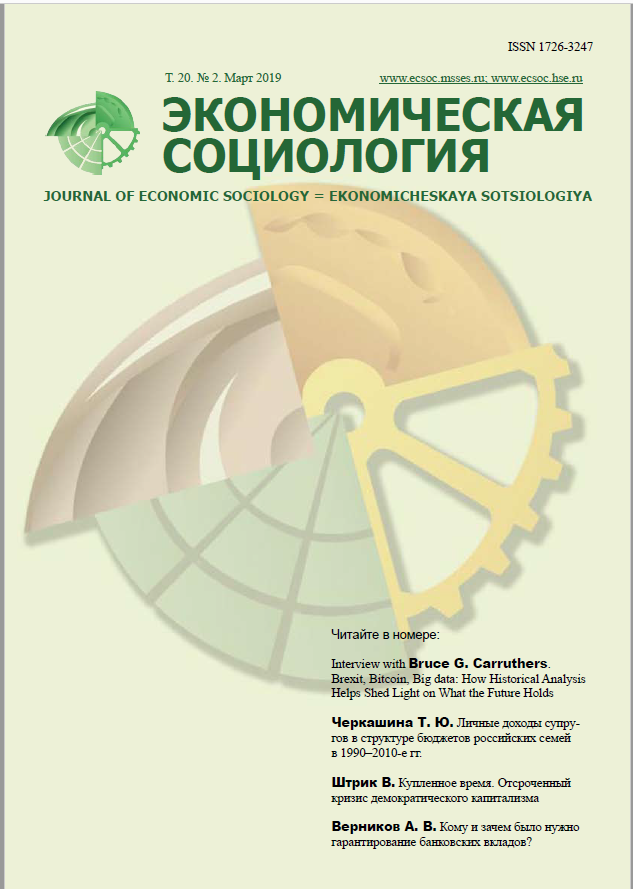Realization of Male and Female Achievement Motives in the Labor Markets across the World
Abstract
The objective of the paper is to reveal сross-country and gender differences in values and the actualization of three achievement motives across the world: namely, high earnings, career growth and interesting work. Achievement motivation contributes to improving the quality of work and thus contributes to both the growth of the welfare of the worker and the economic growth of the country. In previous studies, it was shown that the achievement motives are more widespread among men, and it is easier for men to put these motives into practice. At the same time, it is expected that in countries with high levels of individualism, GDP per capita and gender equality, women would show more interest toward work and thus have more desire to achieve. In our work, we have tested this hypothesis. The International Social Survey Program (2015) serves as a dataset, and the sample includes the employees. Multi-level logistic regression analysis showed that the motives for high income and career growth are more important for men, while the motive of interesting work is of higher significance for women. However, interesting work is more important for women in almost all countries, whereas higher importance of income and career motivation for men is observed only in some countries. At the same time, the motives for high income and a good career are more attractive to men than women, and there was no gender difference in the realization of the motive for interesting work. Contrary to the initial hypothesis, the gender gap, both in the importance of high income and career growth and in the success of their realization turned out to be higher in countries with high levels of individualism, GDP per capita and gender equality than in less wealthy countries with opposite characteristics. Thus, higher rates of individualism, economic well-being and gender equality do not necessarily lead to the like-mindedness of men and women in achievement motives and the equality of their opportunities in the labor market.













